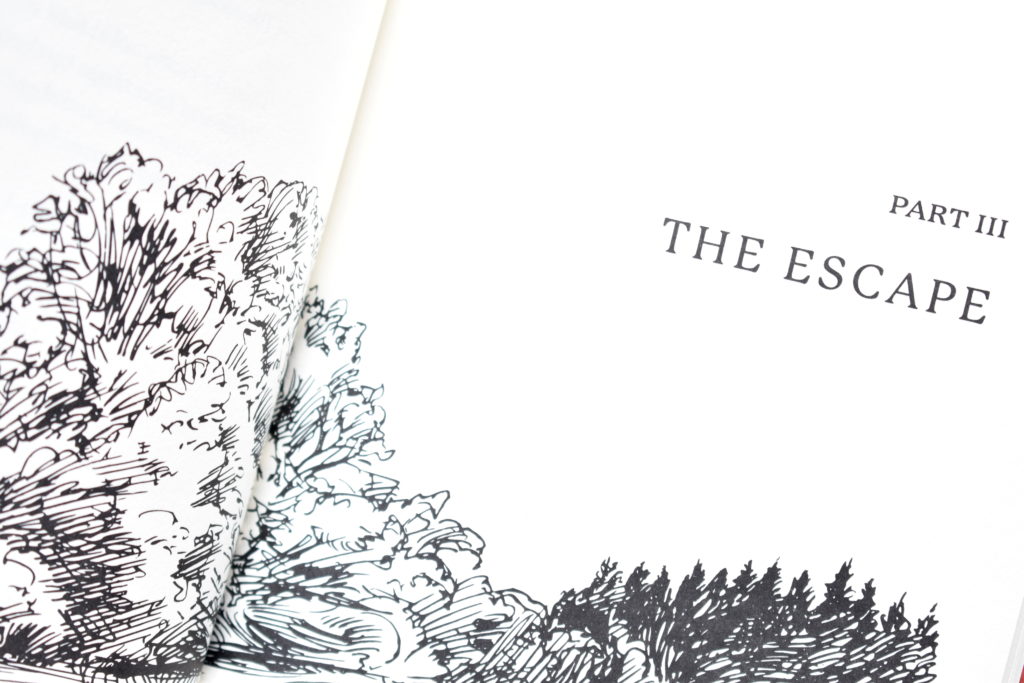You know all those great books by C. S. Lewis? The Chronicles of Narnia, The Screwtape Letters, The Great Divorce, Mere Christianity, and a bunch more. But what is Spirits in Bondage: A Cycle of Lyrics, other than a generally ignored and forgotten book of poetry by a young, unconverted Lewis? This is not the Lewis you’re used to reading. After I read a couple of these poems to my children, my ten-year-old daughter asked me, “Did something bad happen to him to make him write those things?” Her question is valid and appropriate. Valid considering there are poems in this book like “Satan Speaks,” “In Prison,” and “Dungeon Grates,” And appropriate considering he experienced the premature loss of his mother, service in World War I, and serious battlefield injury. No doubt those experiences shaped his theology, worldview, and resultantly, his poetry. So I’ve read Spirits in Bondage before in first-edition form (you can read my thoughts here), but this re-release from Lexham Press offers the reader a different and improved experience. Here’s why, and I’ll expand on both of these below. First, the book looks incredible from the cover to the page. Second, Karen Swallow Prior gives you the best little tutorial you could ever hope to read before you jump into these poems for yourself. You should read Spirits in Bondage anyway, but you should really read this edition from Lexham—even if you already own it in another edition. Here’s why.
This is not the Lewis you’re used to reading.
This is a beautiful, section sewn hardcover of 100ish pages. The powder blue (I don’t know what else to call it) cover has a fittingly macabre memento mori in the center shaded the color of slate. The book’s dimensions (5 ¼” x 8 ¾”) give it a slimmer, more unique look than the standard 6” x 9”. I like how you get a surprise splash of color when you open the book to find a brick red pastedown tiled with the same memento mori design from the cover. The font choice is sharp and closely mimics whatever they used in the original Heinemann edition. And Lexham has improved upon the typesetting by switching from a right-aligned to a left-aligned hanging indentation. This makes for easier reading. The publisher retained Lewis’s use of grave accents, but it would have been helpful to explain this convention in a preface. Turns out dead poets used to slap a grave accent on words ending in -ed when they wanted you to pronounce the vowel. That’s helpful to know. Now, the bad news (okay, it’s not that bad), and don’t ask me why I checked this, but there’s an accent missing on the word filmed on page 52. But, the good news is this is no biggie and hardly warrants the need for a corrected second edition.

There are some endorsements in the front, and they’re well worth reading for the perspective they offer on this book. And having already read this book before, the real reason I wanted this rerelease from Lexham, was to read Prior’s introduction. It doesn’t disappoint. Her piece will enrich your understanding and appreciation for the book. Thanks to her helpful introduction, I came out more sympathetic towards Lewis’s immaturity out of respect for his demonstrated potential. I also appreciated some needed context that’s critical to fully appreciating these poems. Prior is candid about their strengths and weaknesses. And she offers a valuable perspective by distilling the book’s theme and Lewis’s theology. The introduction may be short, but it’s a gem. My recommendation is to read this book twice. Skip the preliminaries on your first run, and just read the stuff by Lewis. See what you think about the poems and their message. Then, read it a second time (it’s a short book), starting with the endorsements and introduction.

As for the poems themselves, there are forty-one of them arranged in three parts plus a prologue. They’re designed to be read in order so the theme can develop and build bit by bit. And after reading this book a second time, and this time with the help of such a thoughtful introduction, my overall opinion on the book hasn’t shifted dramatically. The poems are decent. I’m glad they rhyme. And it’s a grammar of sorts that expresses the feelings a person has toward God when they have no relationship with Him. Lewis expresses a longing. You see it, for example, in this final stanza from “The Roads.”
And the call of the roads is upon me, a desire in my spirit
has grown
To wander forth in the highways, ‘twixt earth and sky alone,
And seek for the lands no foot has trod and the seas no sail
has known:
You see this same longing in the final stanza from “In Praise of Solid People.”
Then I do envy solid folk
Who sit of evening by the fire,
After their work and dose and smoke,
And are not fretted by desire.
I enjoyed the experience of reading these poems. They take some work. They take some thinking. I still have lots of unanswered questions. But that’s part of the experience. You would do well to heed a tip from the author himself, who wrote to his brother, “…I most fully agree with you about ‘the lips being invited to share the banquet’ in poetry, and I always ‘mouth’ it while I read, though not in a way that would be audible to other people in the room….I look upon this ‘mouthing’ as an infallible mark of those who really like poetry” (387). So, for the best reading experience, mouth your poetry. One thing I wish Lexham would have done to enhance the reading experience a little is adding explanatory footnotes for archaic terms, Latin phrases, and unfamiliar allusions such as anodyne, tarn, Tu Ne Quasieris, and Dagda. Yes, I have Wikipedia, but I don’t want to stop and look this stuff up. Understandably, most readers probably won’t stop to look this stuff up, and their experience will be duller as a result.

No one probably considers C. S. Lewis an amazing poet, but this book offers a wonderful experience that begins the moment you pick it up. And the enjoyment lasts well beyond after you’ve put it down as you continue to ponder these poems. I don’t know how Lexham Press is making books this nice for a list price of $15. But this is one you want to buy for the looks, for the helpful introduction, and for a profound side of C. S. Lewis you should experience firsthand. I suppose time will tell if Lewis was correct when he wrote to his friend, Owen Barfield, “I am more and more convinced that there is no future for poetry” (407).
You can order Spirits in Bondage directly from Lexham Press here.
Thanks to Lexham Press for providing me with a review copy of this book. This did not influence my thoughts regarding the work.
0 Comments